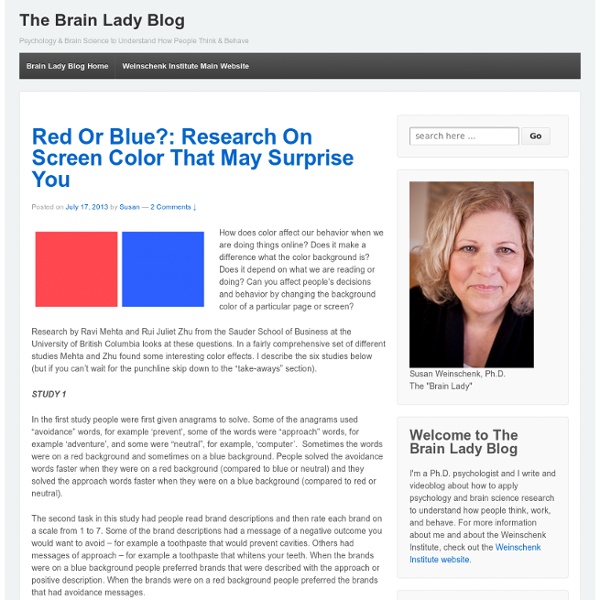



Ivan Pavlov Ivan Petrovich Pavlov (Russian: Ива́н Петро́вич Па́влов, IPA: [ɪˈvan pʲɪˈtrovʲɪt͡ɕ ˈpavləf] ( ); 26 September [O.S. 14 September] 1849 – 27 February 1936) was a Russian physiologist known primarily for his work in classical conditioning. From his childhood days Pavlov demonstrated intellectual brilliance along with an unusual energy which he named "the instinct for research".[1] Inspired by the progressive ideas which D. I. Pisarev, the most eminent of the Russian literary critics of the 1860s and I. M. Early life and schooling[edit] The Pavlov Memorial Museum, Ryazan: Pavlov's former home, built in the early 19th century[5] Ivan Pavlov, the eldest of eleven children,[6] was born in Ryazan (now the Central Federal District) of the Russian Empire. Pavlov attended and graduated from the Ryazan Church School before entering the local theological seminary. Ivan Pavlov Career[edit] Married life and family problems[edit] Ivan Pavlov married Seraphima Vasilievna Karchevskaya on 1 May 1881.
My Adventures in Educational Technology Table of contents (With last update date) Cover Foreword (August 13, 2009) Part 1. Quantum theory and consciousness Preface to part 1 (April 12, 2000) Chapter 1. 1.1. 1.6. 1.7. Chapter 2. 2.1. 2.2. 2.3. 2.4. 2.5. 2.6. Chapter 3. 3.1. 3.2. 3.3. 3.4. Chapter 4. 4.1. 4.2. 4.3. 4.4. Chapter 5. 5.1. 5.2. 5.3. 5.4. 5.5. 5.6. 5.7. 5.8. 5.9. 5.10. 5.11. 5.12. 5.13. 5.14. 5.15. 5.16. Chapter 6. 6.1. 6.2. 6.3. 6.4. 6.5. 6.6. 6.7. 6.8. 6.9. 6.10. 6.12. Part 2. Preface to part 2 (October 17, 2010) Chapter 7. 7.1. 7.2. 7.3. 7.4. 7.5. 7.6. 7.7. 7.9. 7.10. Chapter 8. 8.1. 8.2. Chapter 9. 9.1. 9.2. 9.3. 9.4. 9.6. Chapter 10. 10.1. 10.2. 10.3. 10.4. Chapter 11. 11.1. 11.2. 11.3. 11.4. 11.5. 11.6. 11.7.The victim/victimizer polar pair 11.8. 11.9. 11.10. Chapter 12. 12.1. 12.2. 12.3. 12.5. 12.6. 12.7. Chapter 13. 13.1. 13.2. 13.3. 13.4. 13.5. 13.6. 13.7. 13.8. 13.9. 13.10. 13.11. 13.12. 13.13. Chapter 14. 14.1. 14.2. 14.3. 14.4. 14.5. 14.6. 14.7. 14.8. Chapter 15. Chapter 16. 16.3. 16.4. 16.5. Part 3. Chapter 17. 17.1. 17.2.
Variable schedule of reinforcement — Limbicnutrition Weblog Ever wonder why those beaten and abused spouses stay with their abusers? Do you know why it is so hard to stop a gambling habit? It has to do with a bizarre trick of nature called variable reinforcement, and it can keep us trapped in behaviours for life. Schedules of ReinforcementThere is a popular misconception that if you start training a behavior by positive reinforcement, you will have to keep on using positive reinforcers for the rest of the subject’s natural life; if not, the behavior will disappear. This is untrue; constant reinforcement is needed just in the learning stages.
Challenge by Choice with Tiered Instruction and Assessment The Century of the Self The Untold History of Controlling the Masses Through the Manipulation of Unconscious Desires "The conscious and intelligent manipulation of the organized habits and opinions of the masses is an important element in democratic society. Those who manipulate this unseen mechanism of society constitute an invisible government which is the true ruling power of our country. We are governed, our minds are molded, our tastes formed, our ideas suggested, largely by men we have never heard of. This is a logical result of the way in which our democratic society is organized." - Edward Bernays Adam Curtis' acclaimed series examines the rise of the all-consuming self against the backdrop of the Freud dynasty. To many in both politics and business, the triumph of the self is the ultimate expression of democracy, where power has finally moved to the people. The Freud dynasty is at the heart of this compelling social history. Happiness MachinesPart One One: Happiness Machines Two: The Engineering of Consent
Logical Paradoxes ID and Other Reflections